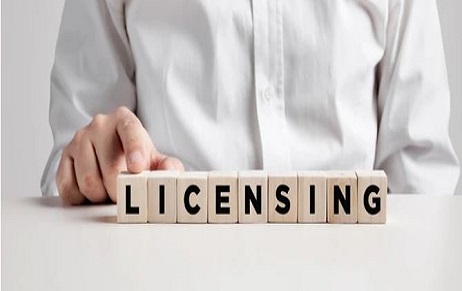Any successful café, restaurant, or retail establishment's environment is greatly influenced by its music. It…
Compulsory Licensing In Africa
Introduction
Africa bears a very heavy burden of disease and its poor pharmaceutical manufacturing capacity forces it to rely heavily upon imports from other countries to fulfil its basic needs. But a strict IP protection regime restricts foreign generic medicines manufactures from manufacturing medicines which are affordable. The Doha Declaration on TRIPS Agreement was adopted to deal with growing concerns of circumscribed access to affordable life saving drugs in less developed or developing countries. The Doha Declaration affirms that provisions of TRIPS Agreement obligating its members to protect IP rights should not prevent the members from taking measures to protect public health.[1] It gives member states of the World Trade Organization (WTO) the right to enact legislations allowing the use of any patented material without permission of the patent holder, a provision known as “compulsory licensing”. But since most African countries do not have the infrastructure and manufacturing capacity to make ample use of this provision, there must be a free trade platform to facilitate free flow of goods and establish a strong manufacturing market in the entire continent. Since most African countries are listed in the Least-Developed Countries list of United Nations, they are allowed, under WTO, to not grant patent to pharmaceuticals till the year 2021.
International patent law and provisions for access to medicines
TRIPS agreement mandates certain minimum standards to be followed by all WTO member nations to protect intellectual property and made it mandatory for such states to recognize patents for pharmaceutical products. Owing to these standards, Asian countries with strong and prodigious manufacturing capacity in the pharmaceutical industry might be restricted from producing generic versions of patented drugs.[2] This restriction substantially undermines the supply of drugs to African countries as imports from China and India accounted for a substantial portion of pharmaceutical imports into Africa.[3] A compulsory license is a provision whereby a government grants to a third party certain rights over a patented product without consent of the patent holder. It is a tool used in public interest, in cases of health emergencies and to prevent the patent holder from monopolizing the market.
Article 31 of TRIPS agreement authorises countries to make provisions for grant of compulsory license to third parties without authorisation from the patent holder, and lays down certain conditions which shall be considered while granting compulsory license. Article 31(f) provides that products made under a compulsory licence shall be predominantly for supply in the domestic market of the country granting the licence. This provision hinders the export of generic drugs to underdeveloped countries like those in Africa.
In 2001, the Doha declaration on TRIPS Agreement was agreed by WTO member nations to frame international health policy with respect to intellectual property regime. It recognized that the restriction on compulsory licensing under article 31(f) could hamper use of provision of compulsory licensing by countries with insufficient pharmaceutical manufacturing capacities. It recognised the permissible option or flexibility to WTO members to grant compulsory license.[4] The paragraph 6 of the declaration recognises that WTO Members with insufficient or no manufacturing capacities in the pharmaceutical sector may face difficulties in making effective use of compulsory licensing under the TRIPS Agreement and the declaration instructed the Council for TRIPS to find an expeditious solution to this problem and to report to the General Council before the end of 2002”.[5] A novel form of compulsory license, allowing export of drugs to underdeveloped countries has been developed: the trade related compulsory licensing.[6]
The general council of WTO decided[7] to waive the obligations of an exporting member under Article 31(f) of the TRIPS Agreement to the extent necessary for the purposes of production of pharmaceutical products and their export to eligible importing members for implementation of paragraph 6 of Doha declaration.
In another decision[8] on least developed country members, the general council waived the obligation of least developed countries to maintain the least standard until 1st January, 2016, which could be extended, if the need be. An extension was granted to least developed countries until 1st July, 2021 by a decision of the general council.[9]
Disease burden of Africa and IP laws in African countries
In most African countries, communicable, maternal, nutritional, and newborn diseases dominate, with 61.2% deaths being caused by these diseases.[10] The median prices of the lowest-priced generic medicines in the African private sector are 6.7 times the international reference prices, whereas the median prices of originator brand medicines are as high as 20.5 times the international reference prices.[11] In a continent like Africa, such exorbitant rates substantially reduce the number of patients who are benefitted, and therefore to cater to the needs of these patients, it is necessary to build a framework to provide affordable medication.
It may be argued that off-patent drugs may be used in place of patented ones, as they are not in the WTO model list of essential medicines. However in certain circumstances, patents impede access to medicines and compulsory licensing is the only way to overcome this impediment.
To grant compulsory licenses, following provisions have been adopted by various African countries –
Industrial Property Act, 2001 of Kenya allows compulsory licences to be granted without meeting the prior negotiation requirement or paying remuneration to the patent holder. Patents and Designs Act 1990 of Nigeria is same as the Kenyan legislation in this regard. Medicines and Related Substances Amendment Act, 2002 of South Africa mandates that if a medicine has already been put on the market anywhere in the world by the owner or with their consent, then there is no need to obtain license for that medicine.
Economic collaborations and the African Treaty
The TRIPS Council stipulated that if a developing or least developed WTO member country is part of a regional trade agreement (RTA), goods produced in or imported under an authorised compulsory licence to that country can be exported to other developing or least developed members in the RTA.[12] Since most African countries are listed as least developed, this mandate will help in free flow of necessary drugs without any barriers across all countries. A barrier free trade zone will also make the trade more commercially viable.
The Treaty Establishing the African Economic Community was entered into between various African countries to establish a framework for integration of African economies for optimum utilization of their resources and development of all economies to increase self reliance and promote self-sustained development. This treaty mandated creation of a community of these economies, but no serious steps towards its establishment have been taken. Keeping in mind the current health crisis in Africa, the establishment of this community is necessary for the voice of small African economies to be heard in the international forum, as well as to provide a forum for unrestricted trade.
Conclusion
The African continent is faced with serious health emergency which require support from other countries. The provisions of TRIPS exacerbate the problems faced by the continent, as they mandate some basic standards to be followed in intellectual property which hinder availability of drugs at affordable rates. So it is necessary to adopt some special mandates with respect to these countries to make these drugs available by import from other countries. The various decisions of the general council of WTO supporting waiver of certain mandates and making it easier to grant compulsory license are welcome steps.
Further, there is a need to build proper infrastructure for local pharmaceutical manufacturing in the African countries. This will ensure utilisation of the compulsory license within the countries as the generic drugs may be manufactured locally and this will further reduce costs, thereby benefitting the patients. It will also improve the technological infrastructure of the continent and serve as an impetus for development of local human resources.
Author: Nayanikaa Shukla, Intern at Khurana & Khurana, Advocates and IP Attorneys. In case of any queries please contact/write back to us at [email protected].
References:
[2] https://www.ncbi.nlm.nih.gov/pmc/articles/PMC3949597/#R1
[4] https://www.wto.org/english/tratop_e/trips_e/pharmpatent_e.htm
[5] https://www.wto.org/english/res_e/booksp_e/ddec_e.pdf
[6] Supra note 4
[7] https://www.wto.org/english/tratop_e/trips_e/implem_para6_e.htm
[8] https://www.wto.org/english/tratop_e/trips_e/art70_9_e.htm
[9] https://www.wto.org/english/tratop_e/trips_e/ldc_e.htm
[10] https://www.who.int/pmnch/media/press_materials/fs/fs_newborndealth_illness/en/
[11] http://www.who.int/medicines/areas/policy/world_medicines_situation/WMS_ch6_wPricing_v6.pdf
[12] http://www.wto.org/english/tratop_e/trips_e/implem_para6_e.htm



